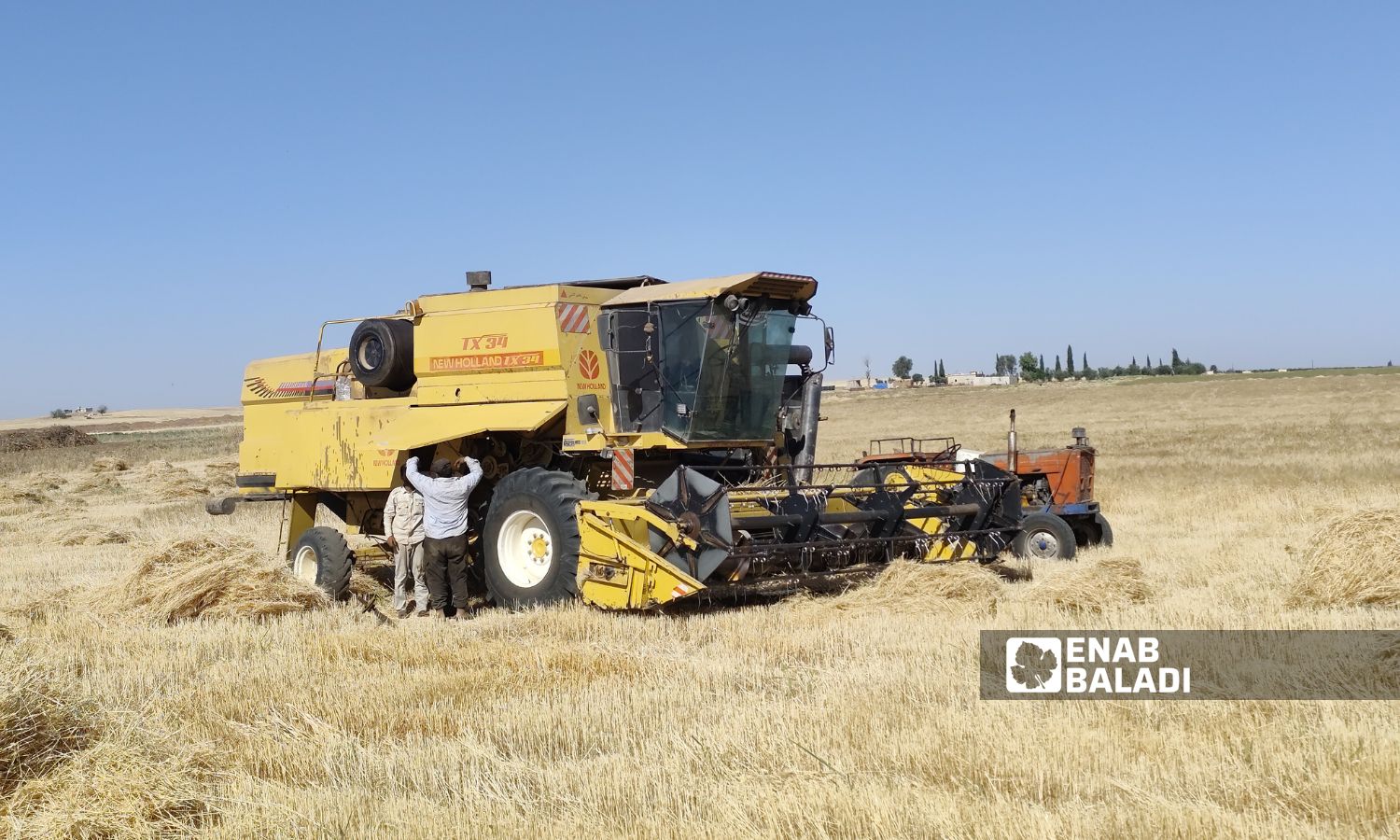



The prices set by the Syrian Interim Government (SIG) for purchasing wheat from farmers have caused anger and dissatisfaction among farmers in the city of Ras al-Ain in northwest al-Hasakah province. They consider the prices to be unfair and lower than the actual production costs, including seeds, fertilizers, irrigation, and labor.
The Interim Government set the price according to a previous decision issued in September 2023, setting the price of a ton of soft wheat (grade one) at $220, grade two at $215, and grade three at $210, with varying bonuses added to the price per ton.
Farmers in Ras al-Ain and Tal Abyad believe that the Interim Government is wasting their crops and not treating them fairly, especially since only a $5 bonus per ton was added in the two cities, while a $25 bonus per ton was added in northern and eastern Aleppo countryside.
The Interim Government did not set prices for durum wheat, increasing farmers’ fears that the Interim Government would not accept this type of wheat, which is predominantly cultivated in Ras al-Ain.
These prices are lower than those of the 2023 season, where the price per ton of durum wheat was $330 and soft wheat was $285.
Majid al-Adnan, a farmer from the village of Dardara, east of Ras al-Ain, told Enab Baladi that the price set by the Interim Government does not cover the costs of agriculture. He mentioned that he bought a ton of wheat seeds for $450, in addition to solar energy costs that exceeded $12,000 for his 95-dunum land.
He considered these prices as “starvation and impoverishment for farmers” and indicated that they are not enough even to cover labor wages. He decided to sell his solar panels and part of his land, and to try to migrate to Europe or Turkey to start a new life.
Rashed al-Tayeb, another farmer from the village of Haroubi, west of Ras al-Ain, said he has been in farming for more than 30 years and has never faced such difficult conditions.
He explained that soft wheat prices dropped significantly and illogically this year, from $280 per ton in the 2023 season to only $220 this year. He added that this price exposes him to financial losses and accumulating debts.
He pointed out that under the current circumstances, he cannot cover production costs, including seeds, fertilizers, and irrigation equipment, and will be forced to sell his livestock and agricultural tools to pay off debts.
Farmer Zidan al-Wadhihi fears he won’t be able to market the durum wheat from his 100-dunum land, noting that the government did not fulfill its obligations to the residents and treats them like traders controlling the free market.
He demanded the need for an entity to receive this year’s crop or to open roads for it to be transported to other areas of control, or for the Interim Government to market the crops at prices that leave farmers with a profit margin to cover their needs and family expenses.
Omar Hamoud, head of agricultural office at the local council in Ras al-Ain, told Enab Baladi that the pricing is not commensurate with the high costs incurred by farmers for this year’s wheat crop.
He explained that overall production has significantly decreased this year, with most lands producing only 150 to 200 kilograms per dunum, whereas in previous years, production did not fall below 350 kilograms per dunum.
He added that the area planted with durum wheat this year was 69,000 dunums, and 40,000 dunums for soft wheat.
Although the majority of farmers turned to durum wheat because its price last year was $330, the government has not issued any instructions to buy it and only priced soft wheat at $220 per dunum, which does not cover a part of the expenses.
Hamoud called on the Interim Government to reconsider the grain pricing issued this year and not to leave farmers at the mercy of traders who buy crops at low prices that do not meet the residents’ needs and living costs.
Agriculture, along with livestock farming, is one of the main professions for most residents of Ras al-Ain and is a primary source of income for the residents.
Farmers in Ras al-Ain face difficulties in marketing their crops, traders’ control, and the absence of government entities to buy strategic crops in the region.
if you think the article contain wrong information or you have additional details Send Correction